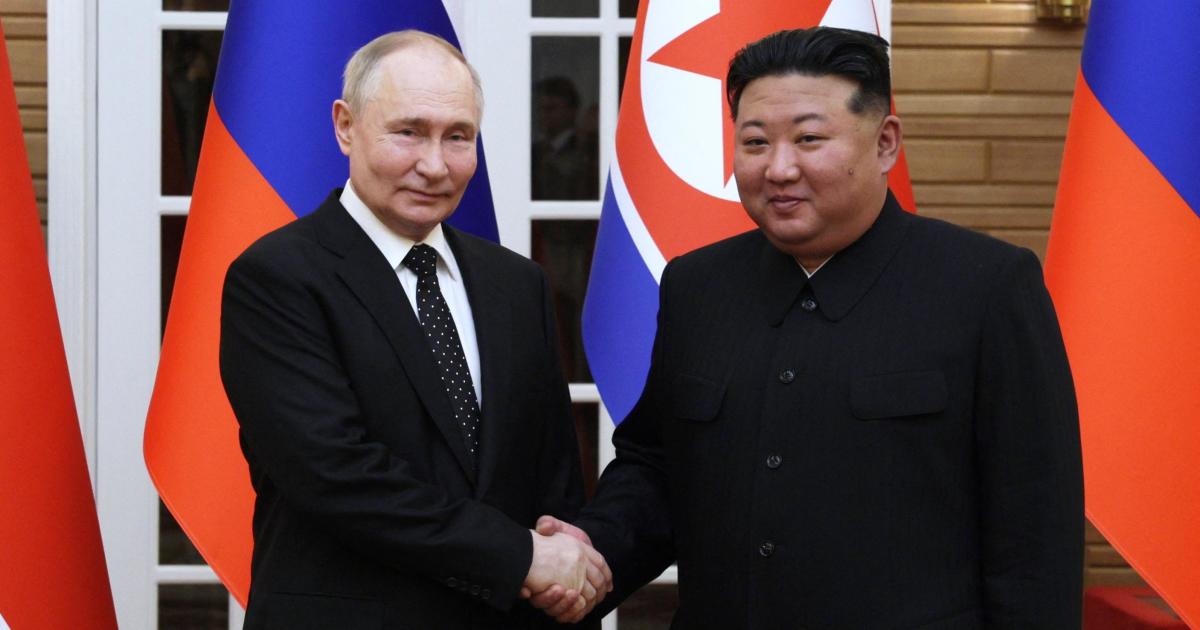South Korea’s National Intelligence Service (NIS) recently reported that North Korea has deployed troops to support Russia’s war in Ukraine. This development significantly escalates the geopolitical situation, involving a third country in the conflict and intensifying tensions between North Korea and the West. The alleged deployment raises crucial questions about the implications for the war, the motivations behind North Korea’s actions, and the potential for further escalation.
North Korea’s Alleged Troop Deployment to Russia
The NIS Report and its Implications
The NIS statement alleges that approximately 1,500 North Korean special operation forces were transported to Vladivostok between October 8th and 13th, with additional deployments anticipated. The report claims these soldiers received Russian military uniforms, weapons, and forged identification documents. Their reported presence at military bases in Vladivostok, Ussuriysk, Khabarovsk, and Blagoveshchensk suggests preparation for deployment to the frontlines following training. Satellite imagery and photographs purportedly showing Russian naval movements near North Korean ports and troop gatherings in Russian cities have been provided as evidence. While the NIS initially reported a total of 12,000 troops, this figure has not been independently verified, sparking debate about the scale and credibility of the deployment. The report’s potential to influence ongoing conflicts and alliances, both directly and indirectly, cannot be overstated. The information shared necessitates a comprehensive and detailed analysis of global repercussions. The release of such data serves as a major geopolitical event.
International Responses and Uncertainty
The international community reacted with varying levels of certainty. NATO initially expressed uncertainty, stating they lacked definitive evidence confirming large-scale North Korean troop deployments. However, NATO acknowledged North Korea’s broader support for Russia, including providing weapons and technological assistance. Ukrainian President Zelenskyy voiced concern, citing intelligence suggesting a possible 10,000-strong deployment in preparation, highlighting the potential to transform the conflict into a “world war”. The Kremlin, predictably, denied the allegations, calling them “fake news.” This mix of responses highlights the difficulty in verifying information emerging from the conflict zones and underscores the complex information warfare surrounding the Ukrainian conflict. The lack of concrete evidence further exacerbates the geopolitical tension, adding an air of suspicion that undermines efforts toward global cooperation and peaceful conflict resolution.
Motivations Behind North Korea’s Alleged Actions
Strategic Alliance and Mutual Benefit
The alleged troop deployment could stem from a strengthening strategic alliance between North Korea and Russia. This aligns with the mutual military assistance pact signed by Kim Jong Un and Vladimir Putin in June, their most significant defense agreement since the Cold War’s end. For North Korea, assisting Russia might secure vital economic aid, technology, or protection against the U.S. and South Korea amidst increasing international pressure related to its nuclear program. Conversely, Russia might benefit from access to North Korean manpower despite its outdated equipment, possibly bolstering their fighting force on a limited scale or alleviating personnel shortages. This apparent partnership hints at a complex and calculated agreement designed to help both countries pursue their separate goals.
Geopolitical Gamble and Potential Risks
North Korea’s participation carries substantial risks. Direct involvement in the Ukrainian conflict could dramatically escalate tensions with the West, potentially inviting severe international sanctions and consequences beyond existing restrictions imposed on their nuclear program and human rights violations. Furthermore, a lack of battlefield experience among North Korean troops raises concerns about their effectiveness. However, it also presents an opportunity for North Korea to gain valuable combat experience and potentially improve their military capabilities. Therefore, despite considerable risks, North Korea might assess its participation in the war as a calculated gamble that could outweigh any potential sanctions. An analysis of existing political dynamics shows North Korea’s strategy to be extremely nuanced and dependent on external factors as much as their internal power struggles.
Implications and Potential Future Scenarios
Escalation of the War and International Relations
If confirmed, the troop deployment would significantly escalate the Ukrainian conflict, involving a previously uninvolved major power with a sizable military force. This introduces new complexities into the ongoing military and humanitarian crises. The ramifications extend beyond the battlefield; further implications could involve escalated tensions with the West, increased international sanctions on North Korea and Russia, and potential shifts in the geopolitical landscape. These impacts raise concerns of escalating global conflict, the potential instability of various regions and governments, and other challenges.
Future Military Actions and Sanctions
Further escalation might involve more substantial North Korean military involvement in the war, potential retaliatory measures from the U.S. and its allies, or further international sanctions imposed on North Korea and/or Russia. The extent of international sanctions might affect global economies. It also highlights the intricate interdependence of international security, the limitations of traditional global sanctions, and the significant influence global power dynamics have on any crisis. Future scenarios would depend on many factors, including actions by involved nations and international political responses. Continued monitoring is vital to predict how the evolving situation could progress in the short and long term.
Takeaway Points
- South Korea’s NIS report alleging North Korean troop deployments in Ukraine significantly escalates the geopolitical situation.
- International reactions range from skepticism to condemnation, highlighting the difficulties of verifying information amid information warfare.
- The motivation likely stems from a strategic alliance between North Korea and Russia, offering mutual benefits and risks.
- The potential implications are vast and could dramatically alter the course of the war and reshape global geopolitics. Further developments and consequences would significantly alter the overall course of international conflict resolution.




